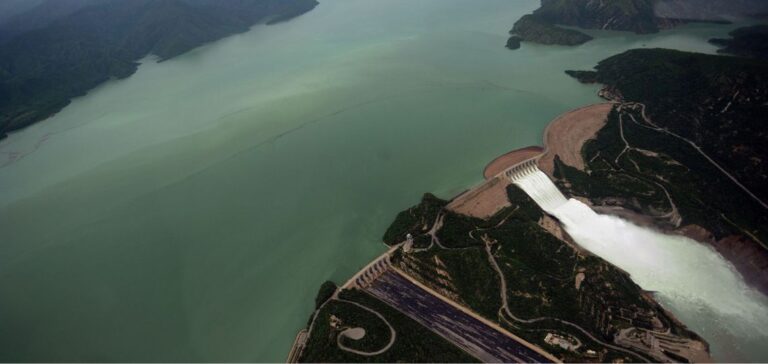The Mohmand Dam project in Pakistan is co-financed bySaudi Arabia, which agrees to provide a $240 million loan to Pakistan. It is a major hydroelectric complex under construction in the northwestern region of the country.
Dam project in Pakistan contributes to energy security and sustainable water supply
According to a statement from the Pakistani Ministry of Economic Affairs, the project is expected to contribute to Pakistan‘s energy security, sustainable water supply for agriculture and human consumption, and improve resilience to flooding.
The funding will help meet the energy needs of Pakistan’s 220 million people and bolster the country’s very low foreign exchange reserves as it faces an acute balance of payments crisis. The project uses renewable sources to generate 800 megawatts of power generation capacity, which will help Pakistan enhance its energy security.
The dam project also supports sustainable agricultural practices by enabling the irrigation of 6,773 hectares of land, increasing the total area under cultivation from 1,517 hectares to 9,227 hectares in the northwest region. Funding for the project comes from a range of international institutions, including the Saudi Fund for Development, the Organization of Petroleum Exporting Countries, the Islamic Development Bank and the Kuwait Fund for Arab Economic Development.
Mohmand Dam Project Receives Major Funding
This loan agreement is the latest in a series of similar agreements between Pakistan and the SDF, which has already financed about 41 development projects and programs in Pakistan, amounting to about $1.4 billion. In addition, the SDF has also financed over $5.4 billion worth of oil derivatives between 2019 and 2023 to support Pakistan’s economy.
Pakistan has a mix of mainly thermal and hydroelectric power generation capacities, which are theoretically adequate. However, the country has insufficient funds to fully utilize this capacity, resulting in power outages lasting several hours, especially during the summer months when energy demand is high.
For example, Saudi Arabia’s $240 million loan to co-finance the Mohmand Dam project in Pakistan is intended to provide sustainable energy and water supplies for agriculture and human consumption while supporting the country’s economic growth. The project is an important step towards Pakistan’s energy security and its ability to meet the country’s growing energy demand.






















